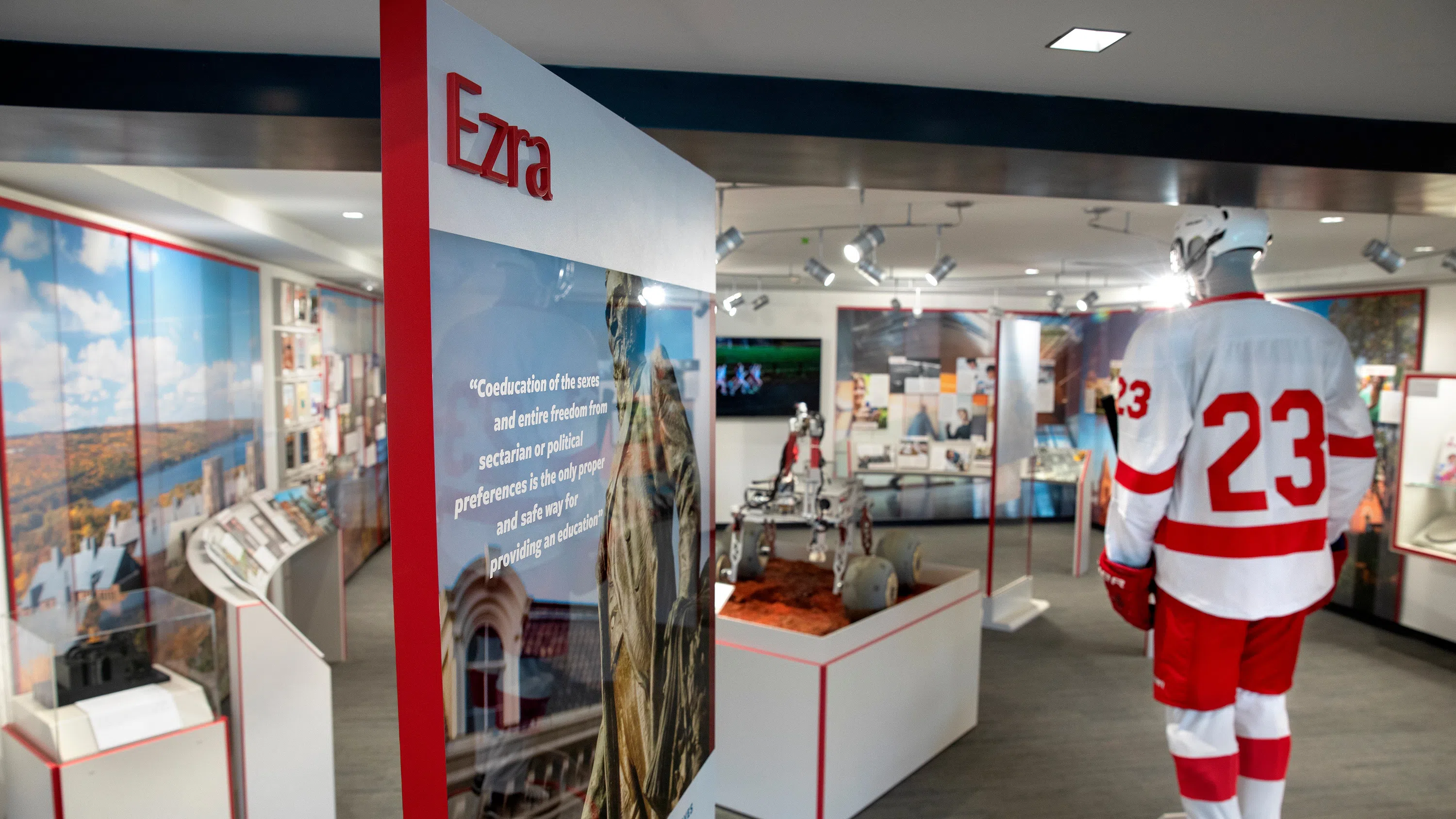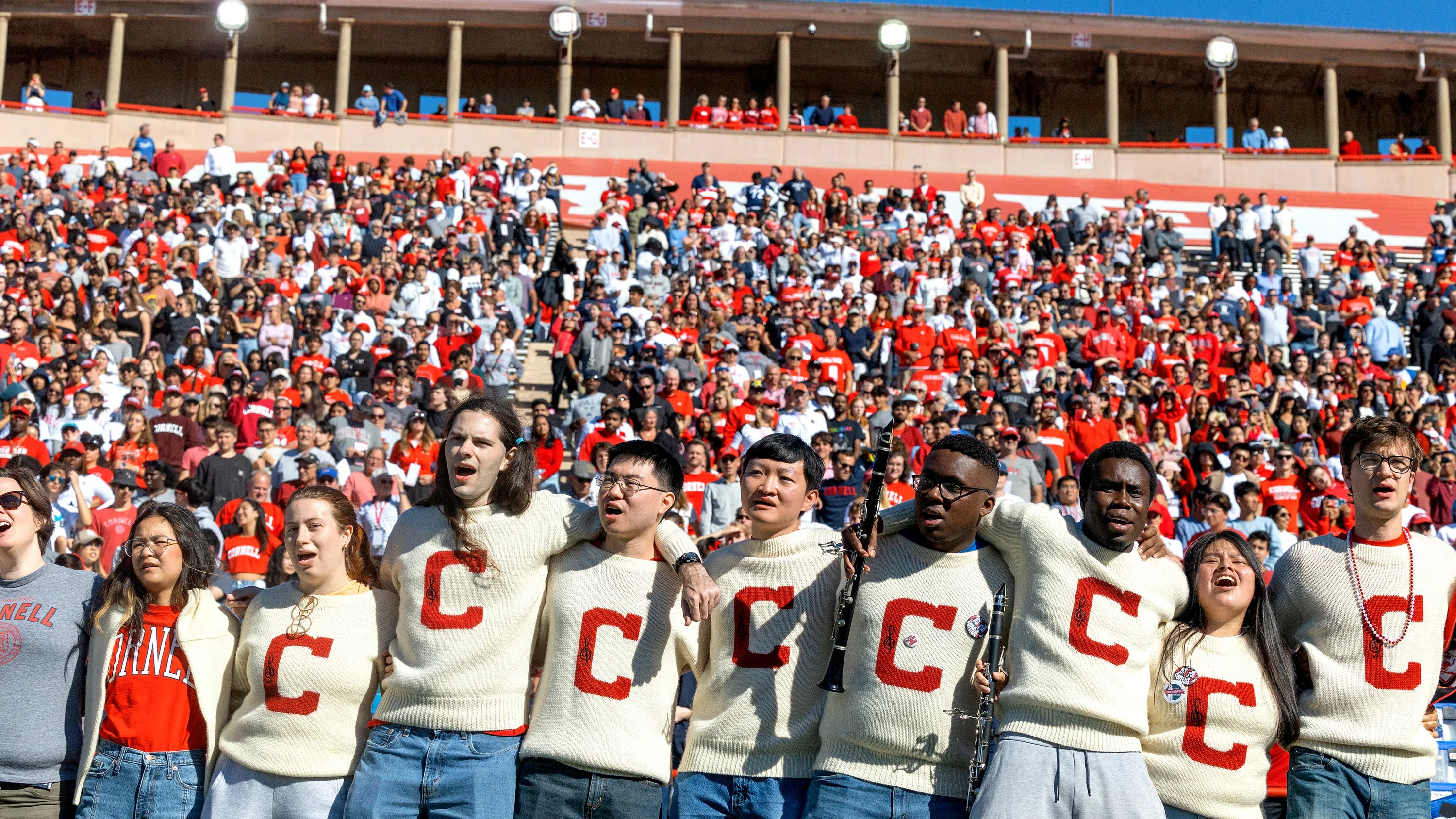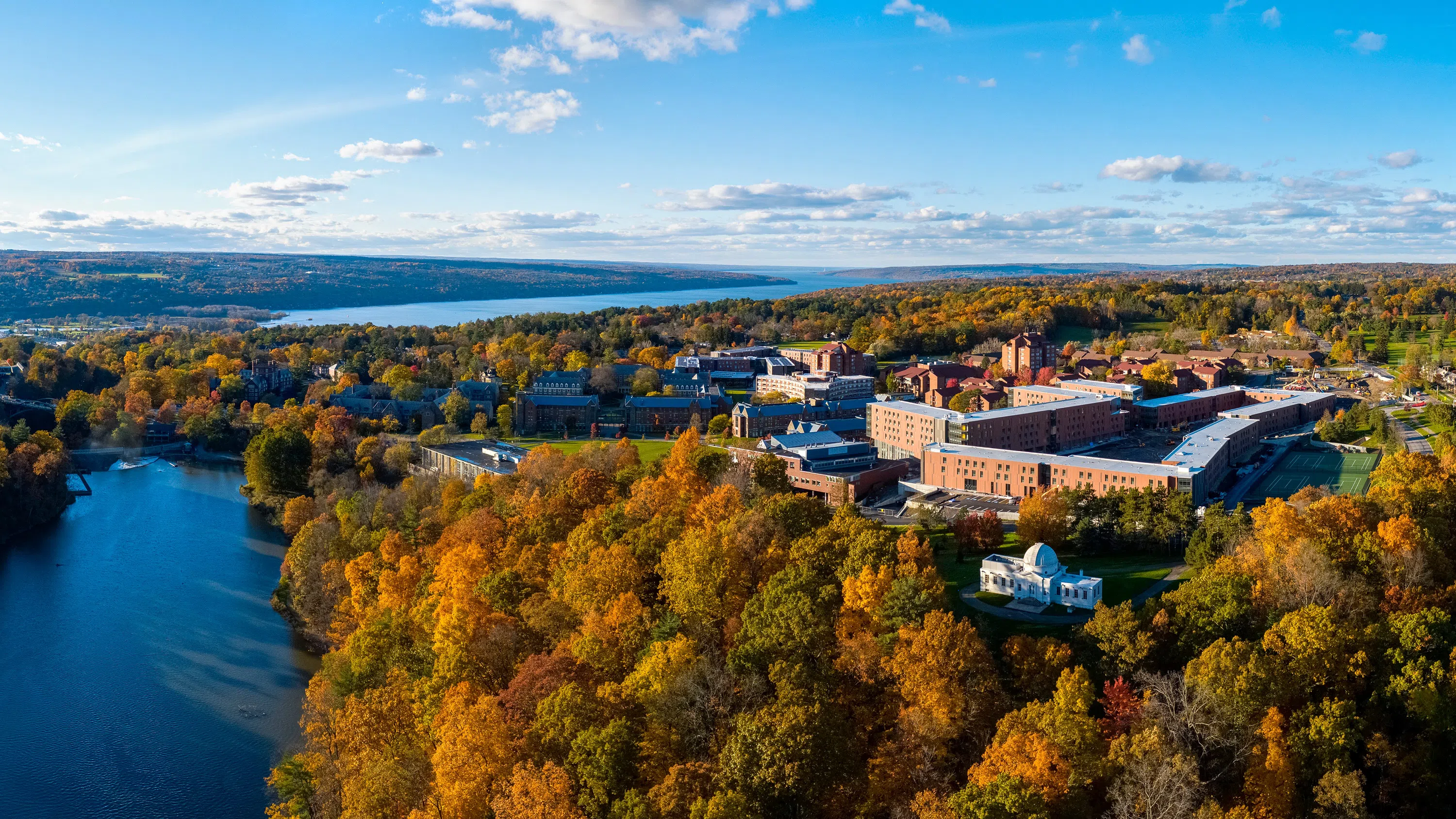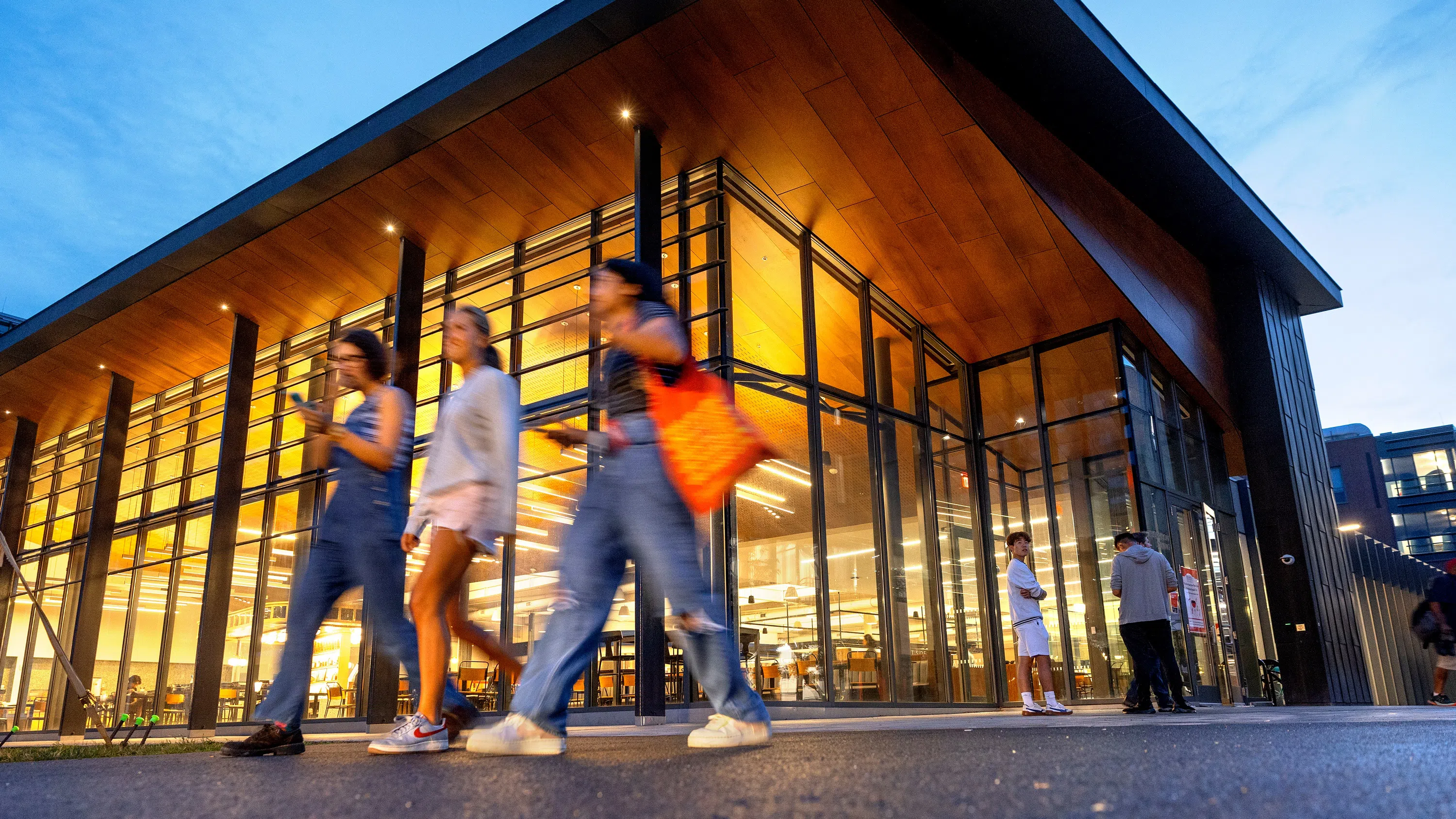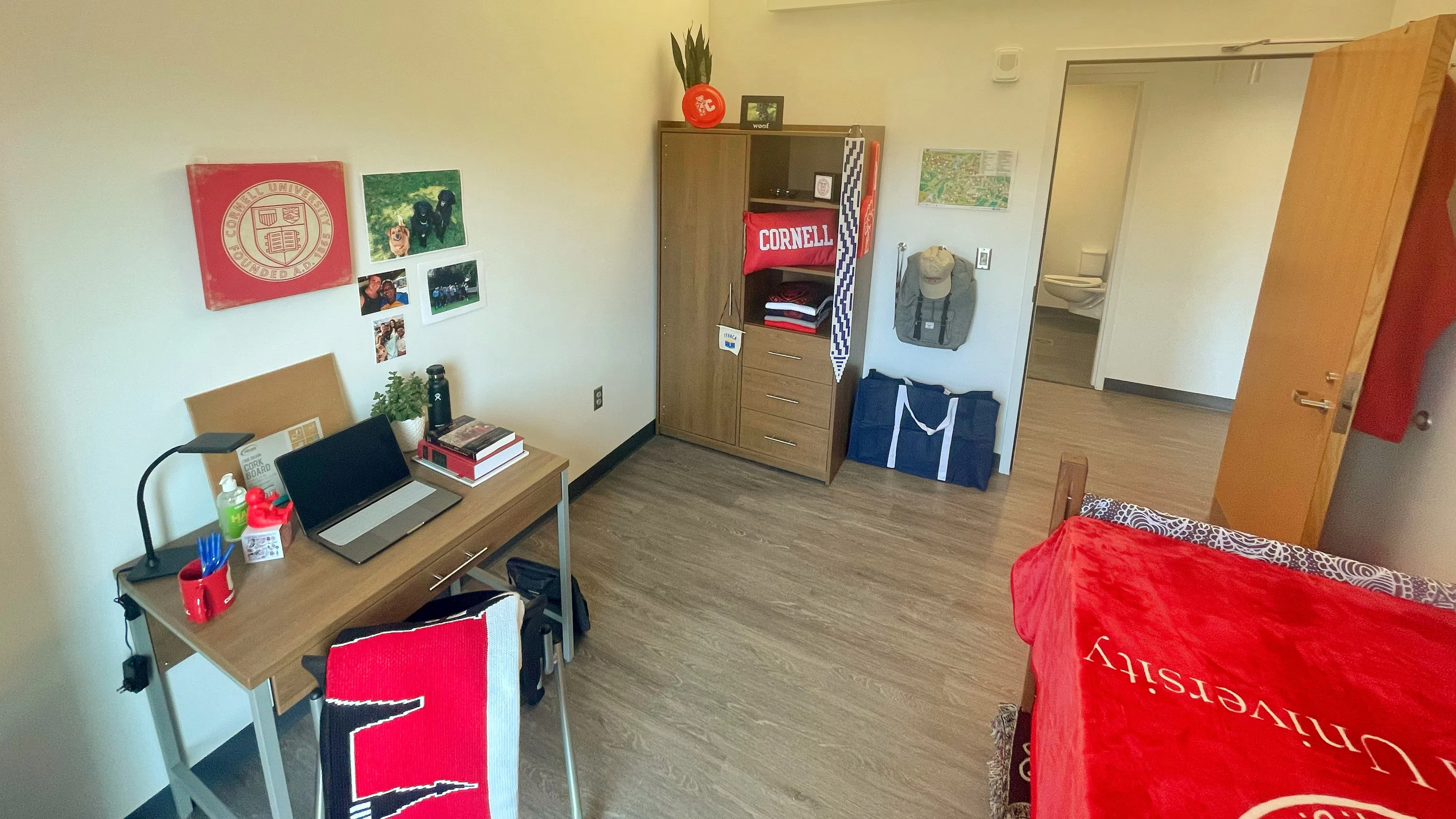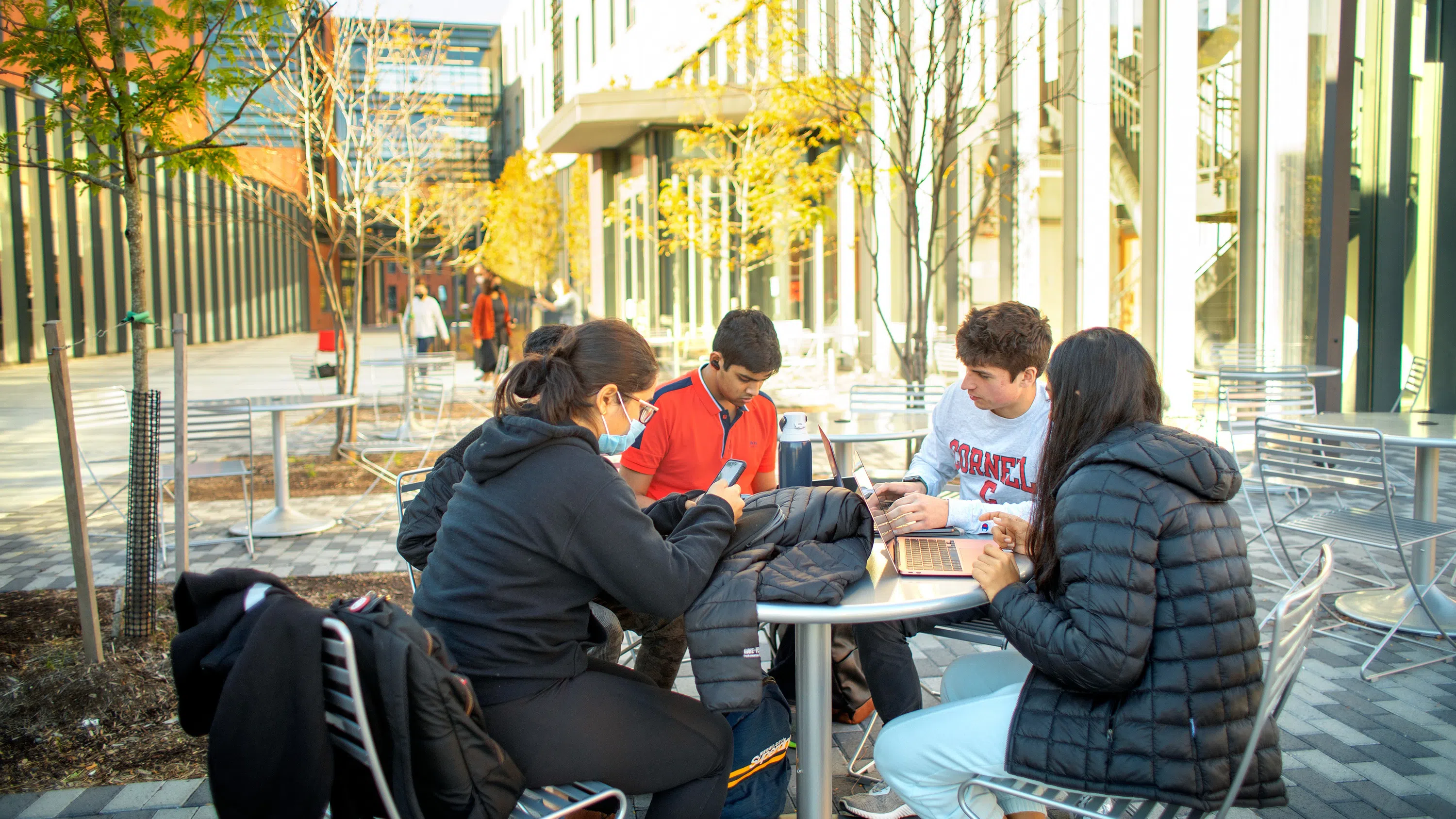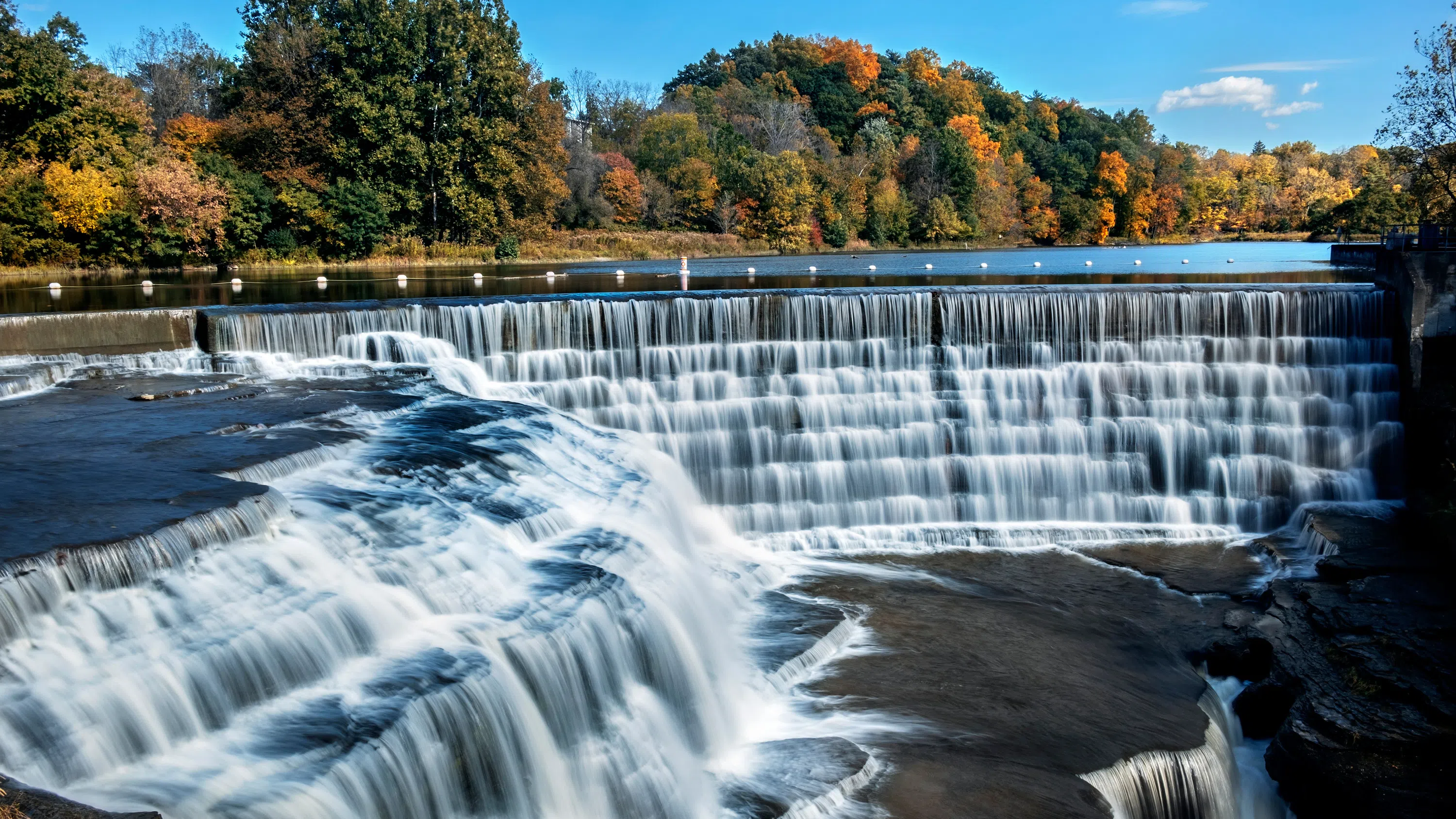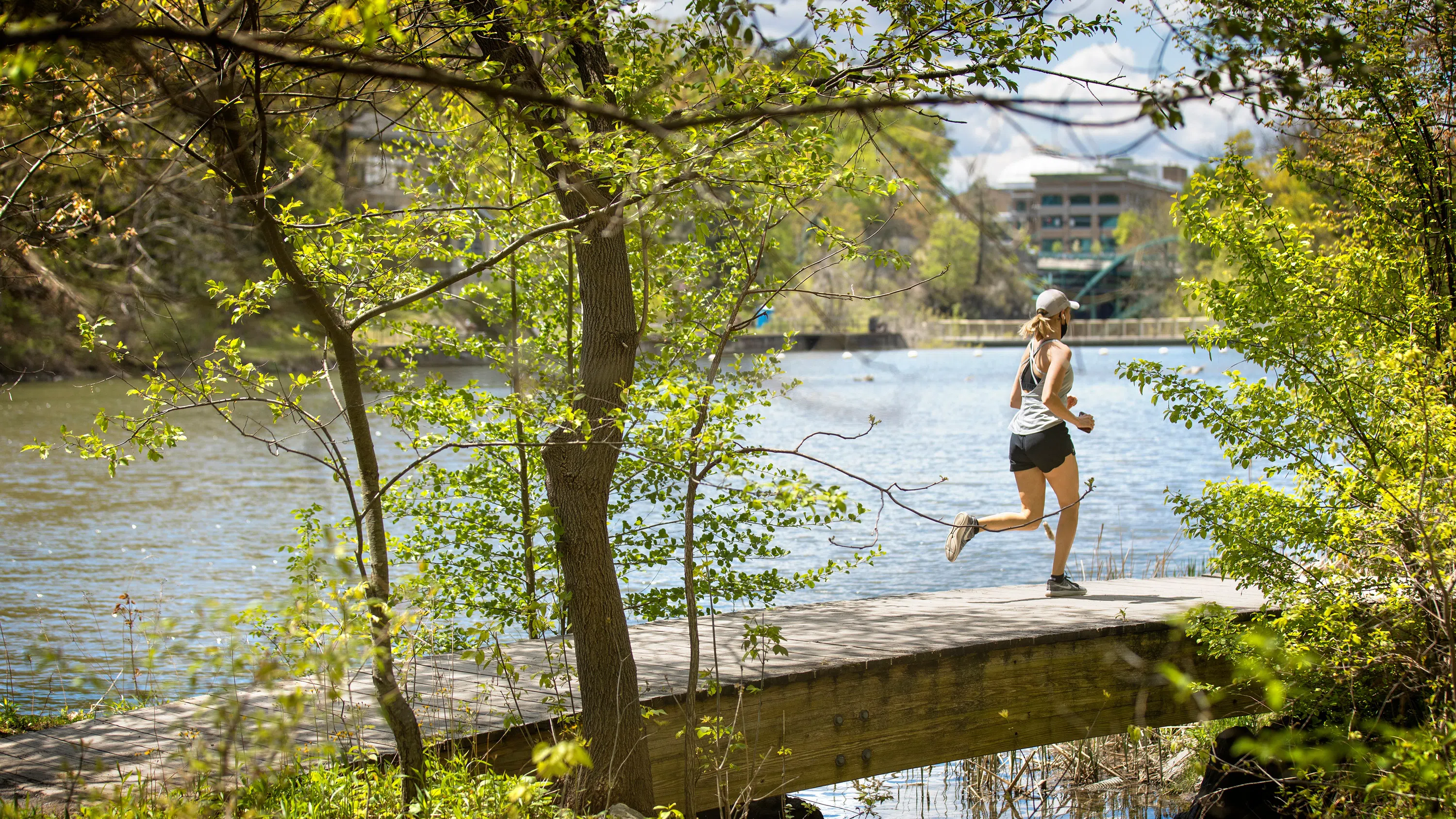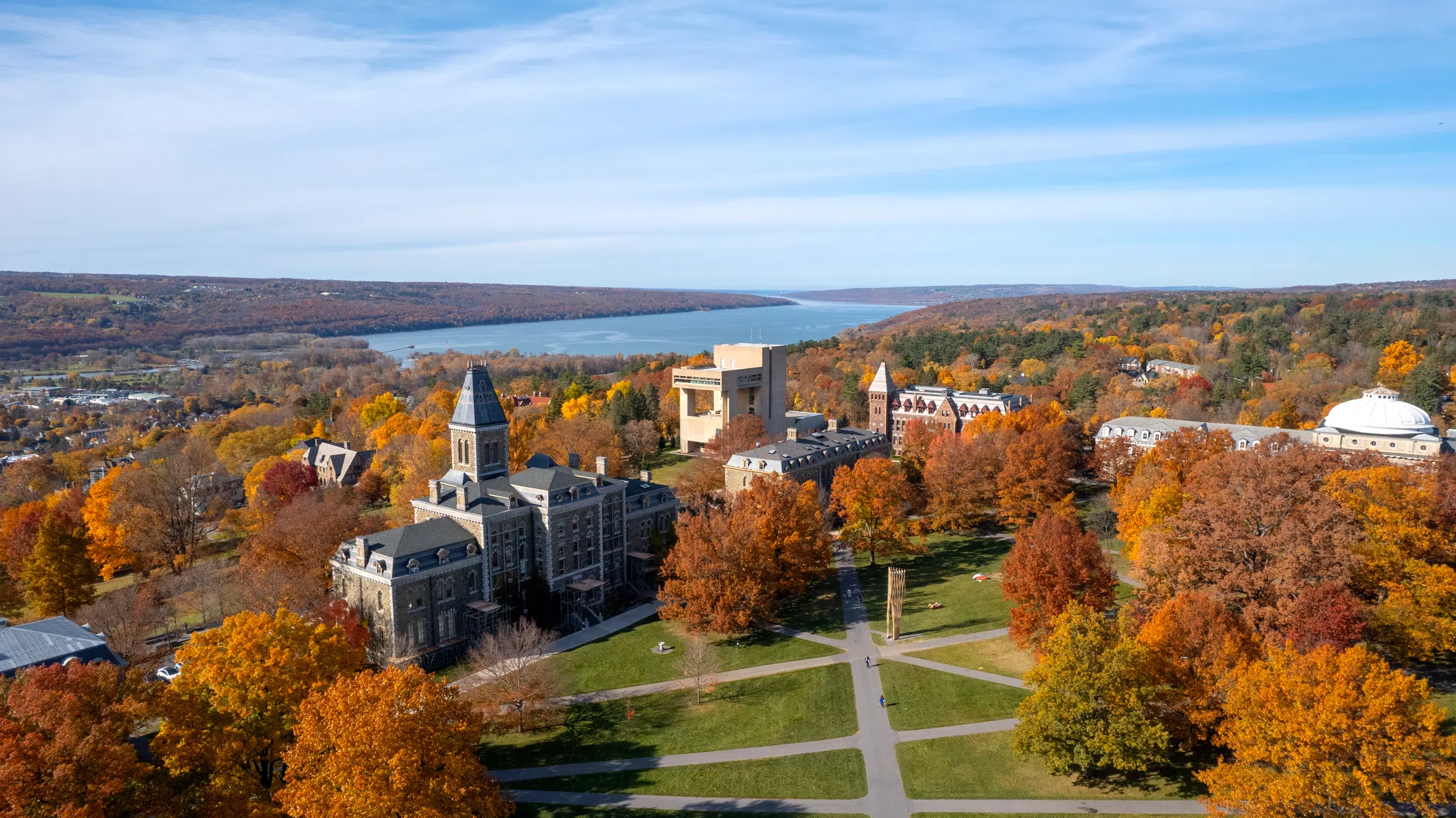Media Gallery
Martin Y. Tang Welcome Center
“... any person ... any study.”
History
North Campus Housing and Residential Life
Beebe Lake
⭐ Martin Y. Tang Welcome Center
The Martin Y. Tang Welcome Center, which sits at the gateway to North Campus, is home to the office of Visitor Relations. Trained Cornell students answer phones, manage the information desk and lead thousands of guests on guided tours, providing unique insights about rich campus traditions and the academic, social and cultural experience at Cornell.
⭐ “... any person ... any study.”
The founding principle of Cornell University — “I would found an institution where any person can find instruction in any study” — was originally spoken by Ezra Cornell on October 7, 1868, at the university’s dedication. Cornell has always welcomed people from all classes, genders, races, and religions, providing a diverse community the opportunity to pursue their academic, personal, and professional interests.
Cornell was the first coed institution in the Ivy League; site of the first Black Greek letter fraternity in the country; and the first to offer college-level programs in architecture and hospitality management. Among its alumni are the first Black woman to win a Nobel Prize, one of the first Black graduates of an American law school, and the first female attorney general. Today, Cornell carries forward this rich history as it remains a proudly inclusive institution, committed to meaningful intellectual exploration, and the free exchange of ideas.
⭐ History
Cornell University was founded in 1865 following the Morrill Land-Grant Act of 1862, which set aside federal lands to create colleges that benefited the “agricultural and mechanical arts.” Ezra Cornell and Andrew Dickson White, both state senators at the time, established the university as New York state’s land-grant institution to serve residents by developing and sharing knowledge and acting as a force for the common good.
We acknowledge that the commendable ideals associated with the Morrill Land-Grant Act were accompanied by the painful history of prior dispossession of Indigenous nations’ lands, and honor the ongoing connection of the Cayuga Nation (Gayogo̱hó:nǫɁ) with their traditional homeland on which Cornell University rests.
Today, Cornell University is a world-class research institution known for the breadth and rigor of its fields of study and an academic culture that prepares students to be well-rounded, global citizens. Cornell remains committed to its mission of positively enhancing lives across New York state and around the world.
⭐ North Campus Housing and Residential Life
All first-year undergraduate students live on North Campus, which includes residence halls and social spaces that foster belonging and growth. With two community centers, three “all-you-care-to-eat” dining halls, three fitness centers, spacious common areas, a convenience store, Esports Gaming Lounge and more, North Campus provides a warm and welcoming hub for new students.
Upper-level undergraduate students may also choose to live in cooperative housing or Program Houses. These specialized residences provide unique programming and themed learning experiences, with communities focused on language arts, the North American Indigenous cultures, ecology, the LGBTQ+ community, music, social justice, and more.
Beyond North Campus, upper-level students can explore housing options on South Campus, as well as the West Campus House System.
⭐ Beebe Lake
Located behind the Martin Y. Tang Welcome Center and maintained by Cornell Botanic Gardens, Beebe Lake provides a peaceful respite in every season for walking, boating, and experiencing local wildlife.
The Botanic Gardens includes the 100-acre F. R. Newman Arboretum, 35 acres of cultivated theme gardens, and the Mundy Wildflower Garden, with a robust native plant education program. These and other natural areas, with 31 miles of trails, are open daily, dawn to dusk, and are free to explore.
